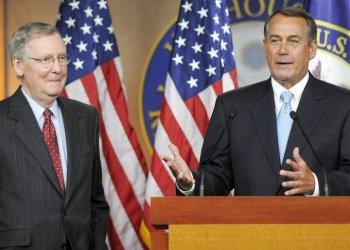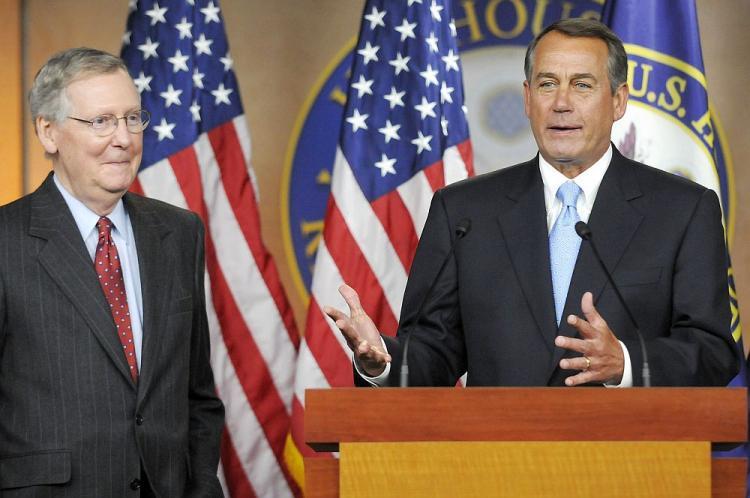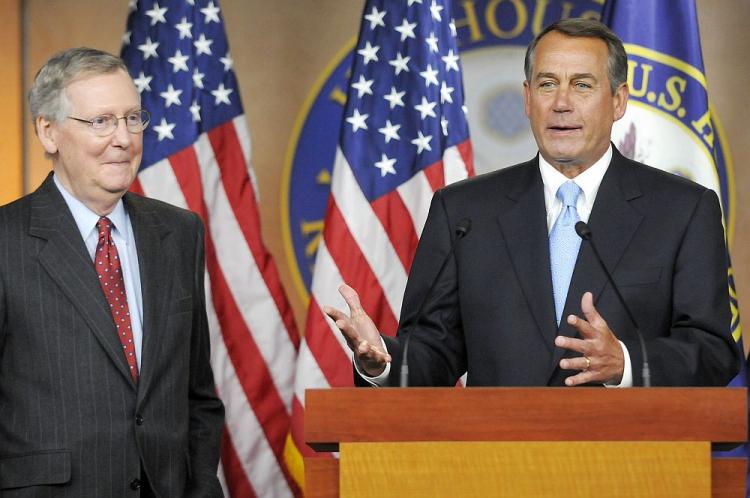Senate Vote Will Advance Budget Talks, Barely
After months of federal government posturing over how much to cut, what to restructure and when, the Senate will vote on not one, but two funding options.

INCREMENTS: U.S. Senate Majority Leader Mitch McConnell (R-Ky.) (L) listens as House Speaker John Boehner (R-Ohio) (R) speaks during a news conference at the U.S. Capitol on March 2, in Washington. The Senate passed a short-term spending bill today by an overwhelming vote of 91-9 that trims $4 billion from the budget and is designed to keep partisan divisions from forcing a government shutdown. Jonathan Ernst/Getty Images
|Updated:
Reporting on the business of food, food tech, and Silicon Alley, I studied the Humanities as an undergraduate, and obtained a Master of Arts in business journalism from Columbia University. I love covering the people, and the passion, that animates innovation in America. Email me at andrea dot hayley at epochtimes.com
Author’s Selected Articles






